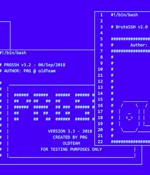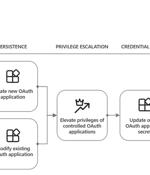Security News

Several companies operating in the cryptocurrency sector are the target of a newly discovered Apple macOS backdoor codenamed RustDoor. RustDoor was first documented by Bitdefender last week,...

Threat actors affiliated with the Democratic People's Republic of Korea (also known as North Korea) have plundered at least $600 million in cryptocurrency in 2023. The DPRK "was responsible for...

The Twitter account of American cybersecurity firm and Google subsidiary Mandiant was hijacked earlier today to impersonate the Phantom crypto wallet and share a cryptocurrency scam. "We are aware of the incident impacting the Mandiant X account and are working to resolve the issue," a Mandiant spokesperson told BleepingComputer.

The Twitter account of American cybersecurity firm and Google subsidiary Mandiant was hijacked earlier today to impersonate the Phantom crypto wallet and share a cryptocurrency scam. "We are aware of the incident impacting the Mandiant X account and are working to resolve the issue," a Mandiant spokesperson told BleepingComputer.

Poorly secured Linux SSH servers are being targeted by bad actors to install port scanners and dictionary attack tools with the goal of targeting other vulnerable servers and co-opting them into a...

Microsoft has warned that adversaries are using OAuth applications as an automation tool to deploy virtual machines (VMs) for cryptocurrency mining and launch phishing attacks. "Threat actors...

The Russian founder of the now-defunct Bitzlato cryptocurrency exchange has pleaded guilty, nearly 11 months after he was arrested in Miami earlier this year. Anatoly Legkodymov (aka Anatolii...

Threat actors from the Democratic People's Republic of Korea (DPRK) are increasingly targeting the cryptocurrency sector as a major revenue generation mechanism since at least 2017 to get around...

The U.S. Treasury Department on Wednesday imposed sanctions against Sinbad, a virtual currency mixer that has been put to use by the North Korea-linked Lazarus Group to launder ill-gotten...

A new macOS malware dubbed 'KandyKorn' has been spotted in a campaign attributed to the North Korean Lazarus hacking group, targeting blockchain engineers of a cryptocurrency exchange platform. At the final stage of the attack, a loader known as HLoader is used, which impersonates Discord and uses macOS binary code-signing techniques seen in past Lazarus campaigns.